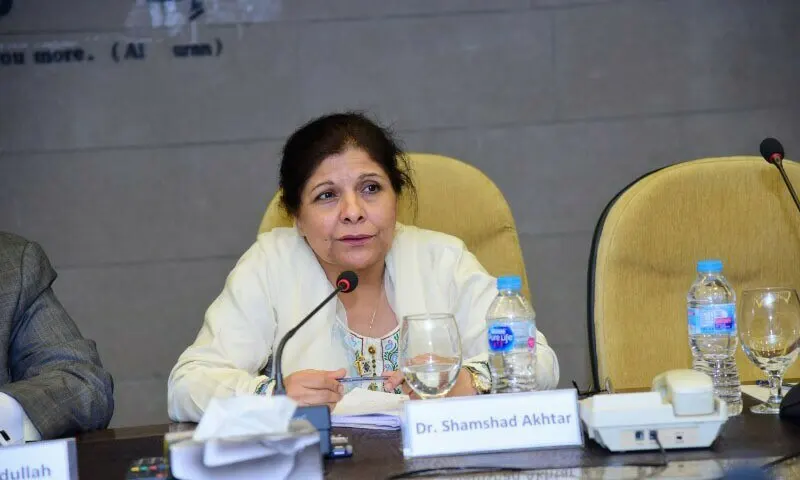Dr Shamshad Akhtar, the Caretaker Finance Minister, has stated that the current economic circumstances leave no room for additional subsidies within the International Monetary Fund agreements.
Speaking to the media following a meeting of the Senate Standing Committee on Finance on Wednesday, Dr Akhtar conveyed the government’s sensitivity toward the welfare of the country’s poor, stressing that the administration is resolute in its commitment to prevent any exacerbation of hardships faced by the vulnerable.
The minister acknowledged that the previous governments had entered into binding agreements with the IMF, elucidating that these agreements inherently encompassed provisions for subsidies.
Consequently, she affirmed that the existing agreements do not permit the inclusion of supplementary subsidies, due to their predetermined nature within the terms established with the IMF.
Dr Akhtar highlighted that the current administration is dedicated to crafting a comprehensive strategy aimed at bolstering the nation’s economic health. She underscored that the caretaker government’s agenda revolves around achieving economic stability and implementing measures conducive to the enhancement of overall economic conditions.
One of the significant measures outlined by the minister involves efforts to stabilise the exchange rate between the national currency, the rupee, and the US dollar. This strategy aims to mitigate volatility in the currency market, ultimately fostering a more conducive environment for economic growth and development.
Akhtar added that the proposal to withdraw facilities for the privileged class was under consideration and a briefing would be given to the committee on the economy after a week.
Shamshad Akhtar warned that Pakistan’s economic situation was “worse than anticipated.” Her remarks, made during a meeting of the Senate’s Standing Committee on Finance, asserted that the interim set-up had “inherited” the International Monetary Fund programme, hence, it was “non-negotiable”. She said government institutions were suffering “unbearable losses” and underscored the need to accelerate privatisation.
According to the finance minister, 70 per cent of Pakistan’s tax revenue was being spent on debt relief.










